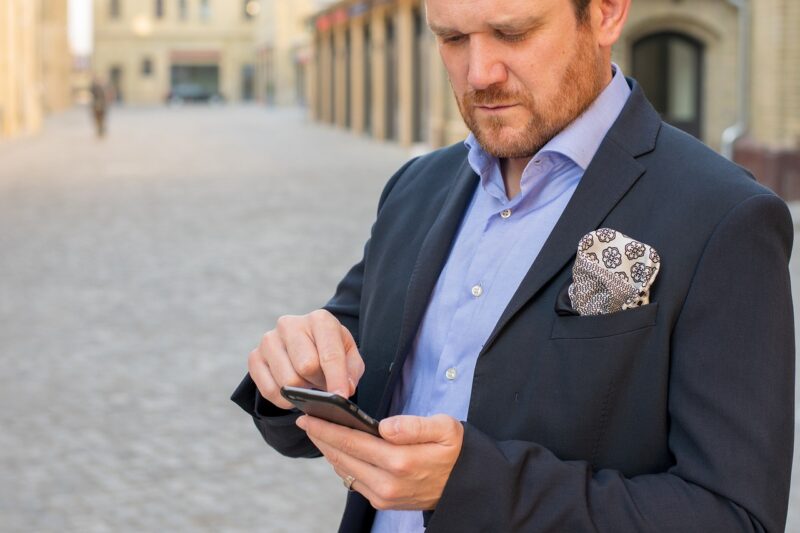Could You Live Without Your Smartphone? Here’s How to Disconnect
November 10, 2024

Smartphones have integrated themselves into nearly every aspect of our lives—from morning alarms to late-night scrolling, we are increasingly reliant on these small devices. But have you ever stopped to consider what life would be like without your smartphone? Could you live without your smartphone? The thought might induce a sense of panic, but stepping back from our screens might be just what we need in our fast-paced world.
1. Understanding Our Smartphone Dependency
A survey by Pew Research Center showed that about 81% of Americans own a smartphone. For many, these devices serve not only as communication tools but as personal assistants, information sources, and entertainment hubs. However, this dependency raises questions about our mental health, productivity, and interpersonal relationships. Here are some key statistics concerning smartphone usage:
- The average American spends 3.5 hours per day on their smartphone, which amounts to over 50 days a year.
- 22% of Americans check their smartphones every few minutes, while 30% feel anxious when they can’t check them.
- Studies show a strong correlation between excessive smartphone usage and issues such as anxiety, depression, and sleep deprivation.
So, how do we break free from our smartphone shackles? Let’s explore some actionable strategies to help you disconnect and experience life beyond the screen.
2. Benefits of Reducing Smartphone Usage
Disconnecting from your smartphone can lead to healthier habits and improved well-being. Embracing a smartphone-free life may result in:
- Improved Mental Health: Reduced screen time can lead to decreased anxiety and better emotional regulation.
- Enhanced Productivity: Without constant notifications, you may experience increased focus and productivity in your work or hobbies.
- Deeper Relationships: Spending quality time with loved ones without distractions can deepen connections and improve communication.
- Getting Back to Nature: Disconnecting allows you to enjoy your surroundings and appreciate the little things, from nature walks to savoring your coffee in peace.
With so many benefits, let’s explore steps you can take to successfully disconnect.
3. Tips for Disconnecting from Your Smartphone
1. Start Small
Begin your journey by gradually reducing your smartphone usage. For example, aim to cut back 30 minutes a day to start. This could mean leaving your phone at home during short errands or setting specific times to check in on social media.
2. Set Boundaries with Apps
Use built-in features to limit your time on certain apps. Most smartphones offer settings that allow you to set daily limits, which can help you stay mindful of your usage. Alternatively, try uninstalling apps that distract you the most.
3. Create Phone-Free Zones
Designate specific areas in your home or office where phone use is not allowed, like the dining table or bedroom. This encourages you to engage with your environment and the people around you without the distraction of your phone.
4. Schedule Smart Breaks
Choose times during the week to go completely smartphone-free. Whether it’s a weekend getaway or a designated hour each evening, plan activities that don’t require technology, such as reading, hiking, or spending time with friends.
5. Explore Alternatives
Find substitutes for activities you usually do on your smartphone. For instance, if you love taking photos on your phone, consider carrying a disposable camera instead. Relying on other tools can help rewire the way you express creativity.
6. Work on Mindfulness
Practicing mindfulness techniques can help reduce the urge to constantly check your phone. Techniques such as meditation, deep breathing, or yoga encourage being present in the moment and can reshape your perspective about your smartphone and its importance in your life.
4. Real-Life Success Stories
Many people have taken the leap to disconnect and found it transformative. Here are a couple of success stories:
Anna, a college student: Anna realized her grades were slipping due to excessive social media use. After disconnecting for two weeks, she increased her focus on studies and met crucial deadlines. She also reconnected with friends through in-person study sessions.
Mark, a young professional: Mark frequently found himself checking emails during family dinners. By implementing smartphone-free family meals, he cultivated deeper conversations with his loved ones, improving his relationships significantly.
These stories highlight the tangible benefits of stepping away from the smartphone, leading to enriched experiences and meaningful connections.
5. Preparing for the Disconnect
Before embarking on your smartphone-free journey, it’s crucial to prepare yourself fully:
- Inform friends and family: Let them know you’ll be reducing screen time, so they can support your endeavor.
- Backup essential information: Ensure that important documents, contacts, and photos are saved elsewhere to ease the transition.
- Identify support systems: Connect with others who are also trying to reduce their smartphone usage to cocreate encouragement and share tips.
Conclusion: Embrace a Smartphone-Free Life
Could you live without your smartphone? The answer for many may initially be “no,” but the idea merits consideration. Simplifying our lives by reducing smartphone usage can lead to a myriad of benefits—from improved mental health to deeper interpersonal connections. By implementing small changes and establishing boundaries, you can find a balanced approach that allows room for both technology and real-life experiences. Embrace the journey toward a smartphone-free life, and discover the richness that awaits beyond the screen. Whether it’s committing to a digital detox weekend or building a support network, every step counts on the path to disconnection.
Remember, it’s not about completely eliminating smartphones from your life but rather fostering a healthier relationship with them. Prioritize your time and attention where it truly matters—invest in moments, connections, and experiences that fill your life with joy and meaning.








